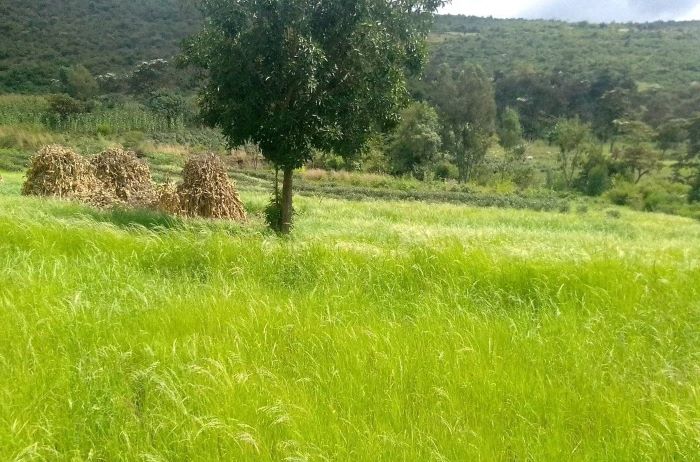Manure is an organic matter that is used as organic fertilizer in agriculture. Most manure comprises of animal feces; other sources include compost and green manure. Manures contribute to the fertility of the soil by adding organic matter and nutrients, such as nitrogen, that are used by bacteria, fungi, and other organisms in the soil. Higher organisms then feed on the fungi and bacteria in a chain of life that comprises the soil food web.
Plants
Beneficial Nematodes For Vegetable Gardens
Beneficial nematodes, also called Entomopathogenic nematodes, can be used majorly to control soil-borne insect pests than controlling other pests found in the vegetable garden. Members of the Steinernematidae and Heterorhabditidae families are beneficial nematodes for gardening purposes; they are colorless roundworms that are non-segmented, elongated in shape, and usually microscopic and commonly found living within the soil.
Best Banana Tree Insecticides For Aphids, Thrips & Others
The largest herbaceous perennial plants in the world are Banana trees (Musa spp.). Cultivated for their fruit, banana plantations are meticulously managed and the trees can produce for up to 25 years. Any number of banana pests and diseases can derail a successful plantation, however, not to mention environmental banana plant problems such as cool … Read more
Arbuscular Mycorrhizae Fungi Species & Benefits To Plants
Arbuscular Mycorrhizal Fungi (AMF) constitute a group of root obligate biotrophs that exchange mutual benefits with about 80% of plants. They are naturally considered as biofertilizers, since they provide the host with water, nutrients, and pathogen protection, in return for photosynthetic products.
Best Apple Tree Companion Plants For High Pollination Rate
Good companion planting with Apple trees help deter pests, attract beneficial insects and pollinators, and also assist the plants to grow to their full potential. Companion plants can help retain moisture and keep weeds down; they can also be used as living mulches that are cut back and allowed to decompose around tree root zones for added nutrients. Some companion plants have long taproots that reach deep within the soil and pull up valuable minerals and nutrients that benefit all the plants around them.
Allelopathy In Weed Suppression With Mechanism
Weeds are out of place plants and not intentionally grown. Weeds have naturally strong competitive behavior and those weeds that can best compete always tend to dominate. There are approximately 250,000 species of plants worldwide; of those, about 3% or 8000 species behave as weeds. Weeds are also known as invasive plants. The weeds typically produce huge amounts of kernels, assisting their spread and are exceptional at surviving and germinate in disturbed environments. It can be specie that is not common or a native species that settle and keeps recurring in an ecosystem in which it did not previously exist. Weeds can inhabit all environments; from our towns and cities through to our oceans, deserts, and alpine areas.
Role Of Agroforestry In Soil Conservation
Farmers have always been practicing agroforestry, growing trees on their land; some with no doubt have knowledgeable ideas that growing trees play crucial roles in soil and water conservation. The main components of agroforestry systems are trees and shrubs, crops, pastures, and livestock, together with the environmental factors of climate, soils, and landforms. Other components … Read more
Hormones Used In Plant Tissue Culture & Micropropagation
Plant tissue culture or micropropagation is an innovation to produce plants from its miniature part under an intensive care platform where all the physiological growth parameters of the plant are induced using synthetic materials such as plant hormones. Synthetic plant hormones or PGRs are used different means of plant propagation from cuttings, grafting, micropropagation, and tissue culture. There are stages for every development in plants; there is a time from leaves and branches developments, root development, flowering, and fruit settings; all these can be artificially induced during tissue culture using certain plant hormones.
Micropropagation of Banana Tissue Culture
Banana is a succulent tropical fruit. Edible bananas do not produce seeds and are propagated vegetatively through suckers. A banana or plantain stand usually have about 7-10 suckers in a year; natural regeneration is slow. Most of banana and plantain production is in backyards or small scale farms for consumption. Suckers obtained are often infected … Read more
Africa’s Coffee Farmers are Losing Billions to Exploitation
Millions of Africa’s coffee farmers have slipped into abject poverty caused by poor prices which are currently barely enough to cover production costs while the rest of the coffee supply chain players enjoy rising profits. The African farmer produces some fine quality coffee, but receives the lowest prices of all growers, globally. African coffee farmers … Read more
